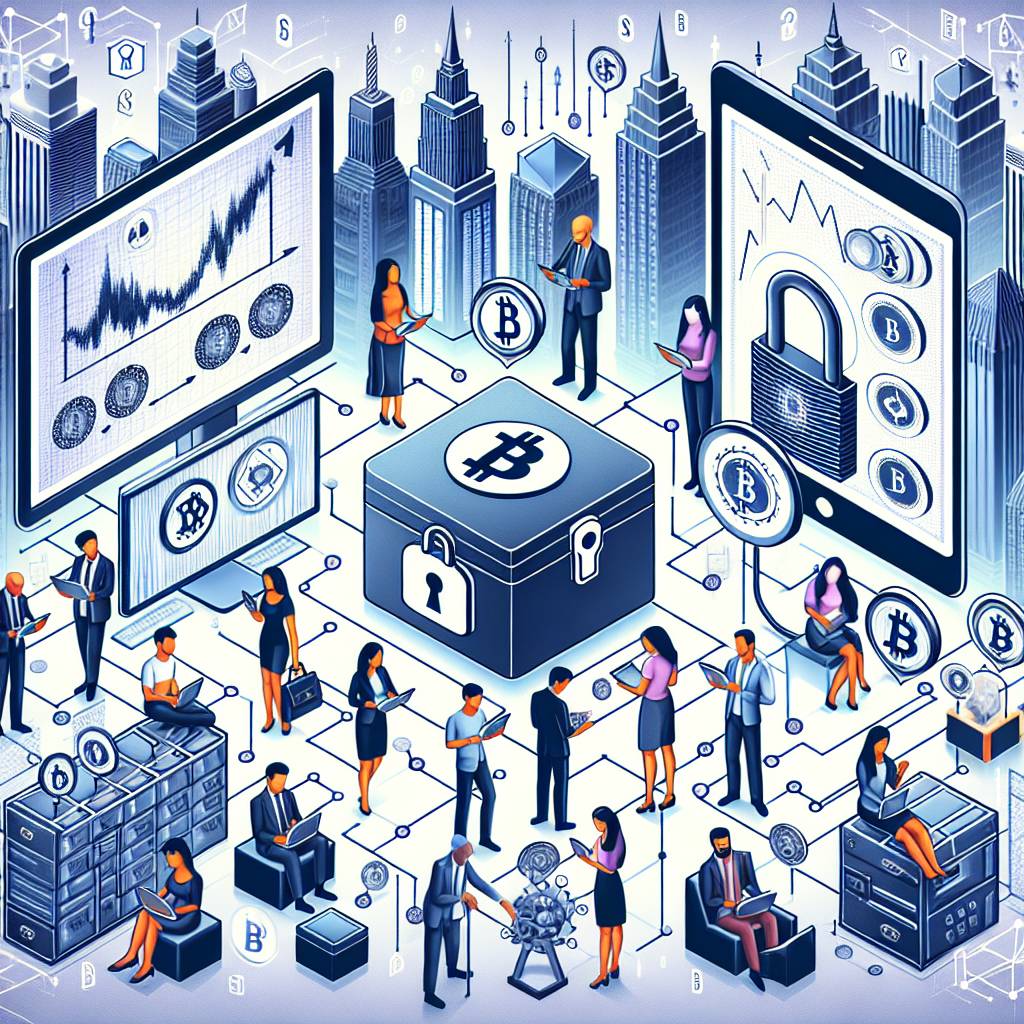How can I securely store my cryptocurrencies to protect against hacks and theft?
I want to ensure the safety of my cryptocurrencies and protect them from potential hacks and theft. What are some secure storage options and best practices that I can follow?

7 answers
- One of the most secure ways to store cryptocurrencies is by using a hardware wallet. Hardware wallets are physical devices that store your private keys offline, making them less vulnerable to hacking attempts. These wallets often have built-in security features, such as encryption and PIN codes, to further protect your assets. Some popular hardware wallet brands include Ledger and Trezor. Remember to purchase your hardware wallet directly from the manufacturer or authorized resellers to avoid counterfeit products.
 Dec 18, 2021 · 3 years ago
Dec 18, 2021 · 3 years ago - If you prefer a more convenient option, you can also use a software wallet. Software wallets are applications that you install on your computer or mobile device. While they are more susceptible to hacking compared to hardware wallets, you can enhance their security by following certain practices. Make sure to download wallets from official sources and keep your software and operating system up to date. Enable two-factor authentication and use strong, unique passwords for your wallet. Additionally, consider encrypting your device and regularly backing up your wallet.
 Dec 18, 2021 · 3 years ago
Dec 18, 2021 · 3 years ago - At BYDFi, we understand the importance of secure storage for cryptocurrencies. We recommend using a combination of hardware and software wallets to maximize security. Hardware wallets provide an extra layer of protection against online threats, while software wallets offer convenience for everyday transactions. Remember to always keep your private keys offline and avoid sharing them with anyone. Regularly review and update your security measures to stay ahead of potential risks.
 Dec 18, 2021 · 3 years ago
Dec 18, 2021 · 3 years ago - When it comes to storing cryptocurrencies, it's crucial to be proactive in protecting your assets. Consider diversifying your storage options by using multiple wallets or even offline storage methods like paper wallets or offline cold storage. Educate yourself about common hacking techniques and stay updated on the latest security practices. Remember, the security of your cryptocurrencies ultimately lies in your hands, so take the necessary precautions to safeguard your digital wealth.
 Dec 18, 2021 · 3 years ago
Dec 18, 2021 · 3 years ago - Storing cryptocurrencies securely is a top priority for any investor. In addition to using hardware or software wallets, you can also consider storing a portion of your funds on reputable cryptocurrency exchanges. These exchanges often have robust security measures in place, such as cold storage for the majority of their funds and regular security audits. However, it's important to note that storing your cryptocurrencies on an exchange does come with some risks, such as the potential for hacking or exchange-related issues. Therefore, it's recommended to only keep a portion of your funds on exchanges and regularly withdraw them to your personal wallets.
 Dec 18, 2021 · 3 years ago
Dec 18, 2021 · 3 years ago - When it comes to securing your cryptocurrencies, it's all about finding the right balance between convenience and security. Consider your own risk tolerance and choose a storage method that aligns with your needs. Remember to always stay vigilant and keep yourself informed about the latest security practices in the cryptocurrency space.
 Dec 18, 2021 · 3 years ago
Dec 18, 2021 · 3 years ago - Protecting your cryptocurrencies from hacks and theft requires a proactive approach. In addition to using secure wallets, consider enabling multi-factor authentication (MFA) for your accounts and regularly monitoring your transactions for any suspicious activity. Keep your devices and software updated with the latest security patches, and be cautious of phishing attempts or suspicious links. Remember, the key to secure storage is to stay informed and take necessary precautions to safeguard your digital assets.
 Dec 18, 2021 · 3 years ago
Dec 18, 2021 · 3 years ago
Related Tags
Hot Questions
- 97
What is the future of blockchain technology?
- 72
What are the best digital currencies to invest in right now?
- 64
What are the best practices for reporting cryptocurrency on my taxes?
- 55
Are there any special tax rules for crypto investors?
- 43
How can I minimize my tax liability when dealing with cryptocurrencies?
- 43
How can I protect my digital assets from hackers?
- 42
What are the tax implications of using cryptocurrency?
- 40
How can I buy Bitcoin with a credit card?
